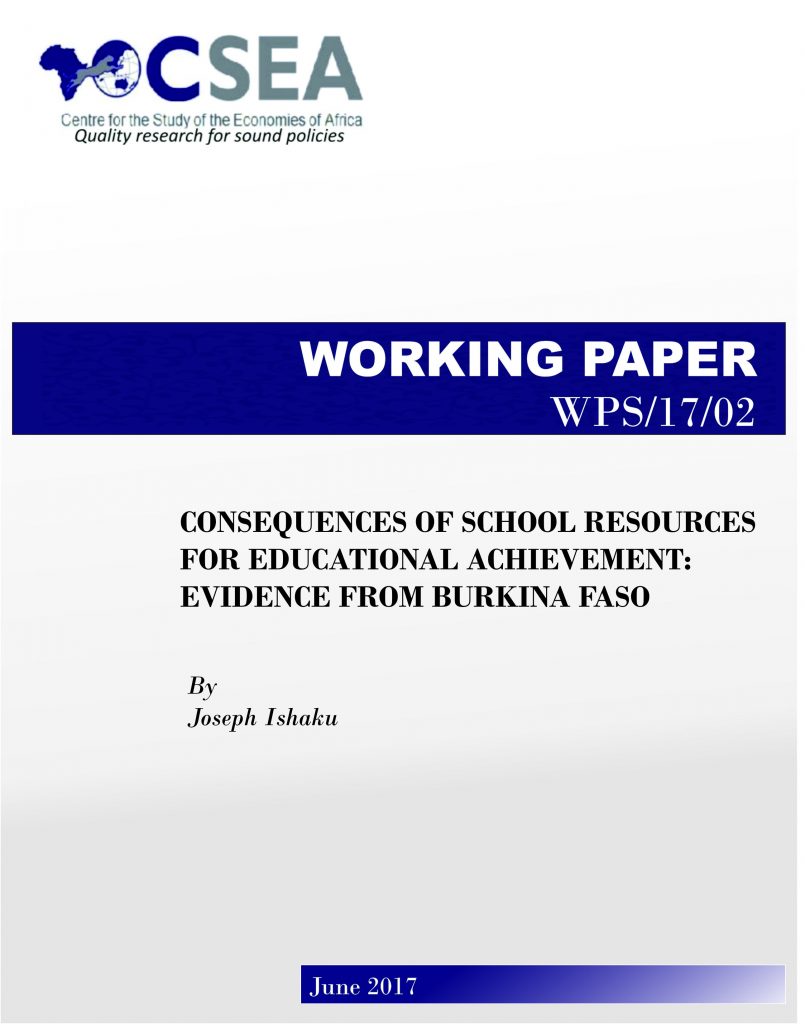Publications

July 7, 2017
Consequences Of School Resources For Educational Achievement
This paper examines the
determinants of educational achievement in a developing country context,
Burkina Faso. We deviate from the extant literature by constructing an
aggregate index of school quality from the observable school resources. Also, we
account for school choice constraints, faced by children especially in rural
areas, as it relates to the geographical inequalities in the distribution of
quality schools. These treatments provide an unbiased estimates of the
relevance of school resources for academic performance. The empirical approach
is based on a two-stage procedure that accounts for supply constraints in
school choice.
Related
Nigeria Economic Update (Issue 17)
Activities
in the manufacturing sector remained at levels recorded in 2016Q3.
Specifically, manufacturing capacity utilization (a measure of potential
manufacturing output that is actually realized) remained at 48.46 percent in
2016Q4 below average. During the quarter, structural bottlenecks
such as epileptic power supply (average of 2, 548 Megawatts) in
addition to forex constraints, hampered manufacturing activities. As such, high
cost of raw materials and cost of production subdued activities in the short
term. Recent efforts by the monetary authority to increase forex access to the
manufacturing sector as well as improvement in gas supply and electricity
generation would help minimize production costs and enhance production process.
